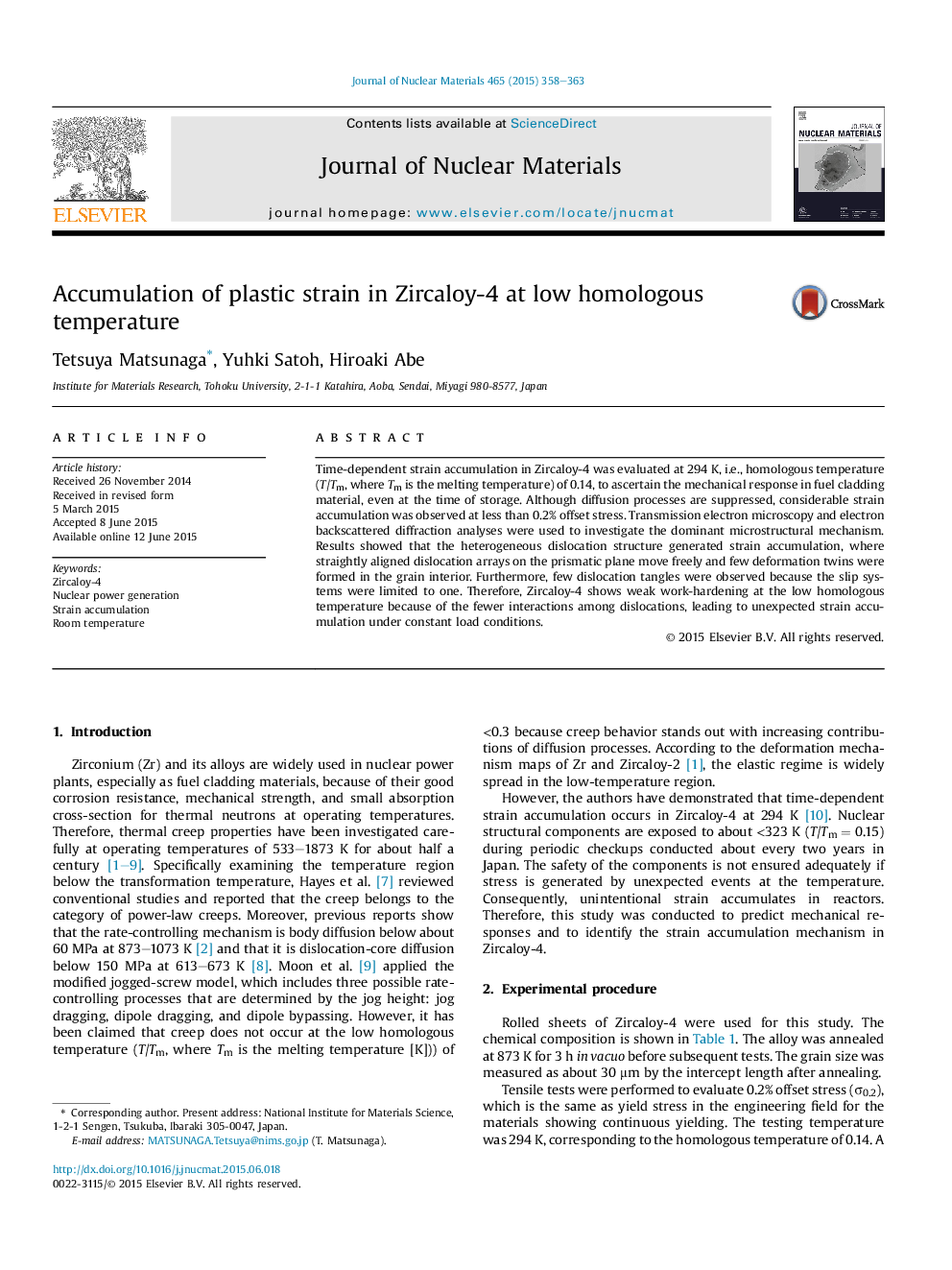| Article ID | Journal | Published Year | Pages | File Type |
|---|---|---|---|---|
| 7965327 | Journal of Nuclear Materials | 2015 | 6 Pages |
Abstract
Time-dependent strain accumulation in Zircaloy-4 was evaluated at 294Â K, i.e., homologous temperature (T/Tm, where Tm is the melting temperature) of 0.14, to ascertain the mechanical response in fuel cladding material, even at the time of storage. Although diffusion processes are suppressed, considerable strain accumulation was observed at less than 0.2% offset stress. Transmission electron microscopy and electron backscattered diffraction analyses were used to investigate the dominant microstructural mechanism. Results showed that the heterogeneous dislocation structure generated strain accumulation, where straightly aligned dislocation arrays on the prismatic plane move freely and few deformation twins were formed in the grain interior. Furthermore, few dislocation tangles were observed because the slip systems were limited to one. Therefore, Zircaloy-4 shows weak work-hardening at the low homologous temperature because of the fewer interactions among dislocations, leading to unexpected strain accumulation under constant load conditions.
Related Topics
Physical Sciences and Engineering
Energy
Nuclear Energy and Engineering
Authors
Tetsuya Matsunaga, Yuhki Satoh, Hiroaki Abe,
